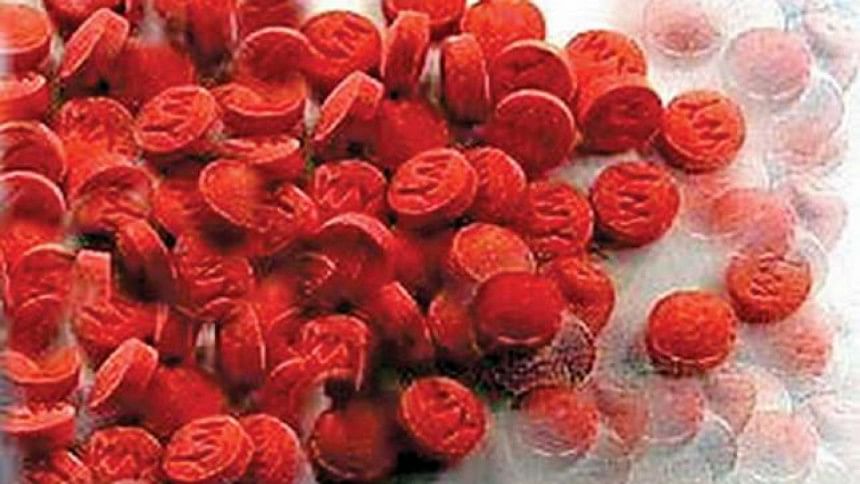Flourishing yaba trade

According to a news report in this paper on May 6, law enforcers arrested a physician in possession of yaba pills, who is a post-graduate student and enrolled in BCS. Recent reports tell us that educated people have joined a growing army of dealers who trade in this illicit drug that has seen a phenomenal rise in usage over the years. Indeed, we find that over the course of a decade, yaba shipment hauls by law enforcers jumped from 36,543 pills in 2008 to nearly 29.5 million pills in 2018. We are looking at a transnational trade in pseudoephedrine and ephedrine which are produced commercially in India and China, some of which are then diverted to factories in Myanmar by drug cartels. The finished product finds itself rerouted through Bangladesh using the new route Teknaf-Kuakata-Barisal-Dhaka.
The problem related to yaba production and distribution is an international one. It is not merely about pressing upon any one country to take more concrete steps to stop the 50 or so factories on their side of the border. It requires political will right across the South Asian belt to set up a coordinating agency that will include all the narcotics departments in different countries. A fight against this cheap but hugely addictive and damaging drug also requires strengthening of monitoring as regards our own pharmaceutical industry, which could also be a source for ephedrine and pseudoephedrine. Unless something is done to combat the trade in this illicit drug, we will be putting millions, particularly the youth, at risk.

 For all latest news, follow The Daily Star's Google News channel.
For all latest news, follow The Daily Star's Google News channel. 








Comments